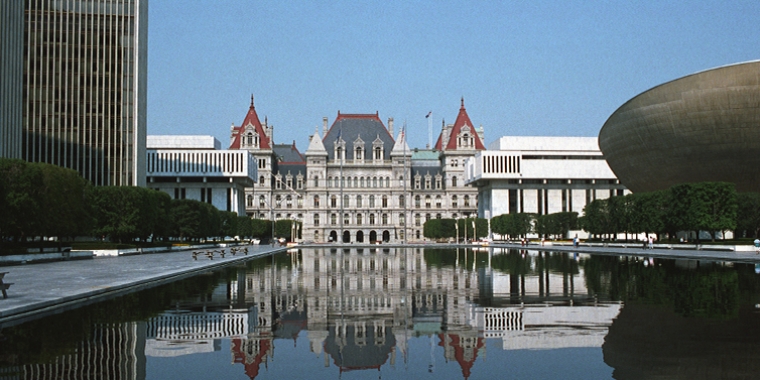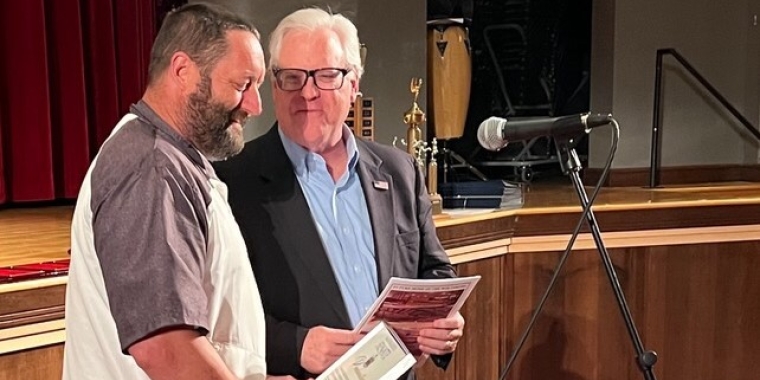
Senator O'Mara's weekly column 'From the Capitol' -- for the week of April 24, 2023 -- 'Is there a place for common sense in this government?"
April 24, 2023
-
ISSUE:
- farm labor costs

Senator O'Mara offers his weekly perspective on many of the key challenges and issues facing the Legislature, as well as on legislative actions, local initiatives, state programs and policies, and more. Stop back every Monday for Senator O'Mara's latest column...
This week, "Is there a place for common sense in this government?
The last time New York’s farmers and agricultural leaders warned Governor Hochul that a misguided, politically motivated state action risked undermining farming as a way of life and a foundation of so many local economies, she effectively covered her ears and turned her back.
That was last October, when the governor gave the final go-ahead to a recommendation from the state’s Farm Wage Board, established under a 2019 law known as the “Farmworkers Fair Labor Practices Act,” to lower the mandatory overtime pay threshold for farm workers from the current 60 hours to 40 hours.
For months on end, we urged Governor Hochul to listen to common sense. We called on her to heed the warnings. We asked her to carefully consider the hundreds of hours of testimony from farmers, farm workers, industry advocates, and concerned citizens, as well as local, state, and federal representatives, including me, who overwhelmingly sought to deliver one message: Stay At 60.
We provided facts from the front lines. For example, Cornell University experts issued a report last November detailing the potential and very troubling consequences of lowering the threshold to 40 hours, including that two-thirds of the dairy farms they interviewed indicated they would move out of milk production, and one of every four fruit or vegetable farms will relocate their operation outside of the state.
Around the same time that Cornell released its findings, Farm Credit East estimated dire economic impacts to farms from lowering the threshold to 40 hours. This report showed that lowering the threshold “could have a significant economic impact on New York’s farms, and that taken together with the scheduled increases in minimum wage, is estimated to increase labor expenses $264 million, or 42%, causing a reduction in farm income of 20%.”
It didn’t matter in the end. The fix was in.
Now, with the ink barely dry on that fateful decision, farmers are already facing the next so-called “progressive” move on the agenda. Governor Hochul and the state’s Democrat legislative leaders are looking to immediately make New York State’s minimum wage the highest in the nation at $21.25 while also indexing the minimum wage to inflation to allow for annual cost-of-living adjustments.
In a recent letter to the governor and legislative leaders, Grow NY Farms, a leading farm advocacy organization comprised of the New York Farm Bureau, the Northeast Dairy Producers Association, and others, wrote, “The fact remains that an increased minimum wage disproportionately impacts small business, including family farms and smaller wood manufacturers, and the supply chain. We believe that New York State should pause any plans for a minimum wage increase to allow farms and small businesses to catch their financial breath, assess economic impacts and plan for the future.”
Remember that New York approved a phased-in minimum wage increase in 2016 that has already had a negative impact on the state’s farmers, manufacturers, and small businesses. Apparently, it doesn’t go high enough, fast enough for the progressive mindset currently controlling New York government.
Far from being a progressive mindset, it’s instead a forget-the-consequences approach to governing that is driving this state into the ground.
New York Farm Bureau President David Fischer recently said, “If (the minimum wage) is increased, the alternatives for farms will be to find ways to cut employee hours, move away from labor intensive crops or simply close up shop, something more than 2,000 farms have done since lawmakers passed the last wage hike. Let’s push pause on higher mandated labor costs, giving small businesses the time to catch up to the high inflation and protecting our local food system from further demise.”
Once again, words of responsible caution and common sense from those on the front lines.
Will Albany Democrats listen this time? Or will they once again carelessly ignore the warnings and keep delivering an even more uncertain future?
###
Share this Article or Press Release
Newsroom
Go to Newsroom


